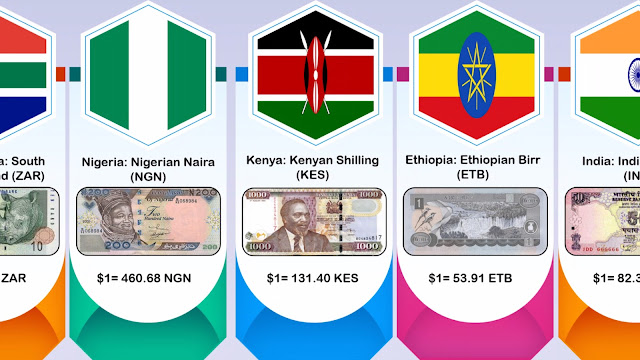Currencies are a vital aspect of global finance and trade, representing the value of goods and services exchanged between different countries. Exploring the world of currencies can provide insights into their historical, political, and economic significance, helping individuals and businesses navigate global financial markets.
The history of currencies dates back to the earliest forms of trade, where bartering was the primary means of exchange. As societies became more complex, currencies emerged in the form of coins made of precious metals such as gold and silver. These coins represented a store of value that was widely accepted and helped facilitate trade between different regions and countries.
Over time, paper currency was introduced as a more convenient and practical means of exchange. Today, digital currencies such as Bitcoin and Ethereum have emerged as a new form of currency that is decentralized and operates independently of traditional banking systems.
Understanding the value of currencies is essential for businesses that engage in international trade. Exchange rates play a critical role in determining the cost of goods and services, and fluctuations in these rates can have a significant impact on profits and investments.

The factors that influence currency values are complex and multifaceted. Economic indicators such as interest rates, inflation, and employment figures all play a role in determining the value of a currency. Political events such as elections and changes in government policies can also have a significant impact on currencies.
Monitoring these factors and staying up to date with changes in currency values is essential for businesses and individuals that want to make informed investment decisions. Currency comparison tools and real-time exchange rate information can provide valuable insights into these changes, helping traders and investors capitalize on opportunities in global financial markets.
Exploring the world of currencies can be a fascinating and enlightening journey. From the history of money to the complexities of modern-day finance, understanding the role of currencies in global trade and finance is essential for anyone who wants to succeed in today's interconnected world.
Here is a list of the currencies of 40 different countries:
United States: US Dollar (USD)
Canada: Canadian Dollar (CAD)
Mexico: Mexican Peso (MXN)
Brazil: Brazilian Real (BRL)
Argentina: Argentine Peso (ARS)
Chile: Chilean Peso (CLP)
United Kingdom: Pound Sterling (GBP)
Eurozone: Euro (EUR)
Switzerland: Swiss Franc (CHF)
Norway: Norwegian Krone (NOK)
Sweden: Swedish Krona (SEK)
Denmark: Danish Krone (DKK)
Russia: Russian Ruble (RUB)
Turkey: Turkish Lira (TRY)
Saudi Arabia: Saudi Riyal (SAR)
United Arab Emirates: UAE Dirham (AED)
Israel: Israeli Shekel (ILS)
Egypt: Egyptian Pound (EGP)
South Africa: South African Rand (ZAR)
Nigeria: Nigerian Naira (NGN)
Kenya: Kenyan Shilling (KES)
Ethiopia: Ethiopian Birr (ETB)
India: Indian Rupee (INR)
Pakistan: Pakistani Rupee (PKR)
Bangladesh: Bangladeshi Taka (BDT)
Japan: Japanese Yen (JPY)
China: Chinese Yuan (CNY)
South Korea: South Korean Won (KRW)
Hong Kong: Hong Kong Dollar (HKD)
Singapore: Singapore Dollar (SGD)
Australia: Australian Dollar (AUD)
New Zealand: New Zealand Dollar (NZD)
Fiji: Fijian Dollar (FJD)
Indonesia: Indonesian Rupiah (IDR)
Philippines: Philippine Peso (PHP)
Vietnam: Vietnamese Dong (VND)
Thailand: Thai Baht (THB)
Malaysia: Malaysian Ringgit (MYR)
Iran: Iranian Rial (IRR)
Iraq: Iraqi Dinar (IQD)

 Saturday, March 25, 2023
Saturday, March 25, 2023











No comments
Post a Comment